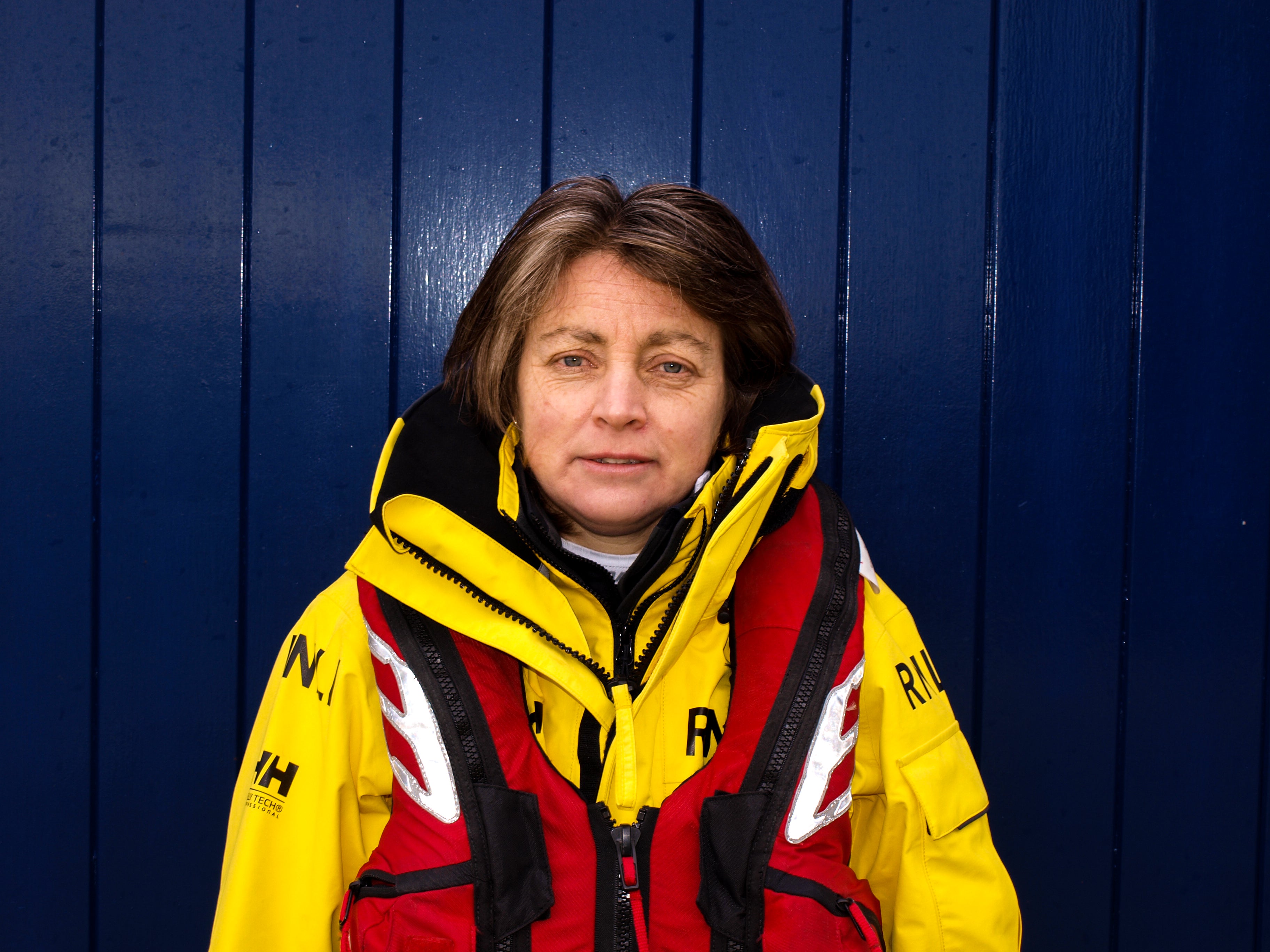Lifeboat charity RNLI appoints its first female coxswain
The lifeboat mechanic will take up her position as coxswain next month

Your support helps us to tell the story
From reproductive rights to climate change to Big Tech, The Independent is on the ground when the story is developing. Whether it's investigating the financials of Elon Musk's pro-Trump PAC or producing our latest documentary, 'The A Word', which shines a light on the American women fighting for reproductive rights, we know how important it is to parse out the facts from the messaging.
At such a critical moment in US history, we need reporters on the ground. Your donation allows us to keep sending journalists to speak to both sides of the story.
The Independent is trusted by Americans across the entire political spectrum. And unlike many other quality news outlets, we choose not to lock Americans out of our reporting and analysis with paywalls. We believe quality journalism should be available to everyone, paid for by those who can afford it.
Your support makes all the difference.A “trailblazing” woman has been appointed the RNLI’s first female coxswain in the lifeboat charity’s near-200 year history.
Di Bush will take up the position for Harwich RNLI, in Essex, after having worked as a full-time mechanic for the station since 2017.
On 1 September, she will take up the coxswain role from Neal Sandquest, who stepped down in July after more than five years to take up a job as a marine supervisor at the Port of Felixstowe.
Ms Bush started her career with the RNLI in 2003 when she joined as a volunteer at Falmouth RNLI in Cornwall.
She then worked her way up to becoming a helm on the Atlantic 75 lifeboat, and a volunteer mechanic on the station’s Severn class lifeboat – the largest lifeboat in the RNLI fleet.
In 2017, she became the first woman mechanic in the organisation – a position she has held at the Harwich station while also being a helm and 2nd coxswain.
A highly-qualified mariner outside the RNLI, Ms Bush was previously the coxswain on the South West Ambulance’s service vessel, the Star of Life, which provided medical cover to the outer Scilly Isles.
Peter Bull, operations manager of the Harwich station, said: “I am very pleased to announce that the RNLI has appointed Di Bush as full-time coxswain, the first woman to hold such a role in the charity’s history – and four years after she was appointed the first female full-time mechanic – both here at Harwich.
“She is well respected on station and will command the Severn class all-weather lifeboat Albert Brown, as well as lead the team.”
Sue Kingswood, RNLI inclusion and diversity manager, said: “We’re working hard to create a more diverse RNLI and a crucial part of that is encouraging women into search and rescue roles. Across our organisation, the more role models we have which represent a greater breadth of diversity, the more successful we will be in our core purpose of saving lives at sea.
“Di is a trail-blazer in this regard and for some years now has been an inspiration to other women, both within the RNLI or thinking about joining our charity.”
The service said female representation has “improved hugely” since 1969, when Elisabeth Hostvedt became the first fully-qualified woman on a lifeboat crew.
The charity’s lifeboat crews now include more than 600 women, the majority of lifeboat stations have a female crew member, and about a fifth of lifeguards are women.
About 95 per cent of all lifeboat crew members and staff are volunteers. The RNLI (Royal National Lifeboat Institution) crews have saved at least 140,000 lives since the organisation was founded 197 years ago.
Join our commenting forum
Join thought-provoking conversations, follow other Independent readers and see their replies
0Comments